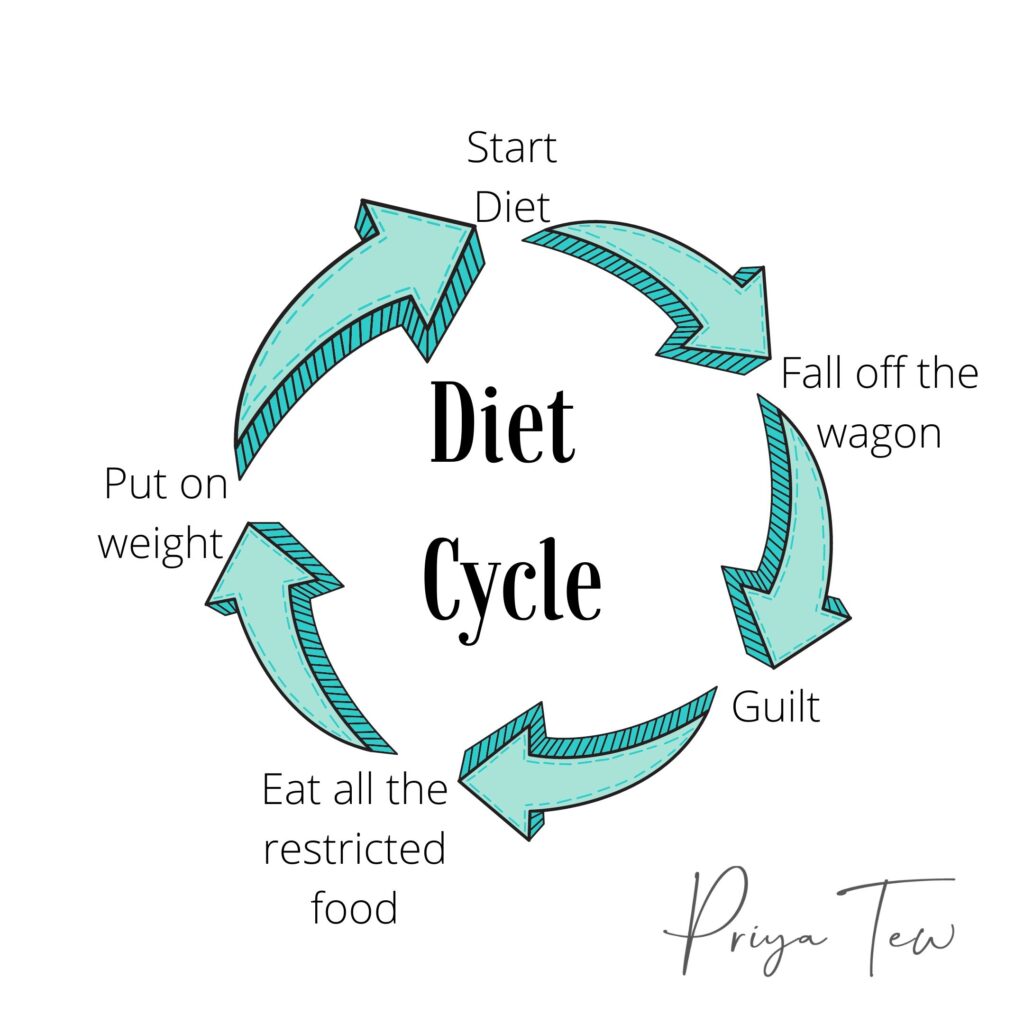Post co-written with Shannon Western.
For most people diets just do not work and lead to a lifetime of further diets. You have probably heard this before. So what are some of the reasons dieting and weight loss don’t work long term?
- Diets slow your metabolism. Your body can’t tell the difference between food scarcity and starvation so to compensate for the shortage of energy your metabolism slows to try and conserve energy. Which means, your body gets good at storing fat and the more weight you lose, the less you need to eat to maintain weight loss.
- Dieting can lead to overeating later on or even bingeing. Think about when you skip breakfast and then you are ravenous later in the day, so you eat everything in the kitchen. Dieting leads to neurotransmitters and hormones stimulating your appetite. This is natural and is just your body trying to tell you it needs feeding.
- Obsessing about food and how much you weigh or look like makes you feel hopeless and overwhelmed. This can lower your self esteem and lead to you eating the foods you are trying to avoid. Cue guilt.
- Weight gain after you stop being on a diet. Around 85% of all weight loss is regained with some extra too. The body likes to be prepared so it will try to have a little extra stored up in case you restrict your food intake another time.
- Most people who diet don’t lose a significant amount of weight (i.e. no more than 5% of their body weight) in the long term.
- Yo-yo or weight cycling is known to be worse for our health compared to staying at a steady higher weight.
- Depriving yourself from foods you enjoy backfires. Putting food rules on certain foods mean they are giving too much power and you will probably “give up” and eat them without even enjoying them.

Instead focus on:
- What can you add into your daily eating to improve the balance of foods. Top tip, it’s often the fruit and veggies!
- Work out what foods bring you satisfaction. Can you plan to eat these regularly so you know you have them in your meal plan. Then eat that food slowly and savour it.
- What other behaviours can you focus on changing? Can you walk more, start meditating, change your sleep? Try not to make it all about food.
- Start with small goals you can actually achieve and stick to LONG TERM. This is not about weight but health.
Working with a dietitian, registered nutritionist or someone with an intuitive eating approach can make a big difference to helping you navigate this. Get in touch if you need some support.